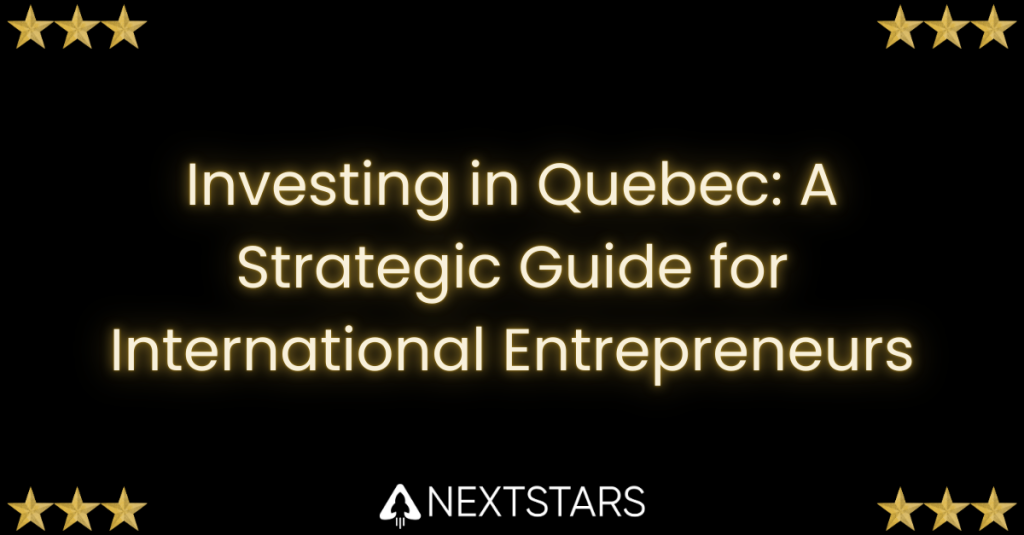Jordan’s startup ecosystem represents one of the Middle East’s most remarkable achievements—a resource-poor nation that transformed constraints into competitive advantages, building a thriving tech sector amid regional turbulence. Despite hosting 3 million refugees and navigating regional instability, Jordanian startups raised an estimated $180-220 million in 2024, maintaining the kingdom’s position as the Levant’s most stable tech hub. With 11 million residents (including refugees), 88% internet penetration, and producing more engineers per capita than most Arab nations, Jordan combines political stability with technical excellence and strategic regional positioning. The ecosystem’s maturity—evidenced by historic exits like Maktoob ($165 million to Yahoo) and Souq.com (co-founded by Jordanian, sold to Amazon for $580 million), plus current leaders like Abwaab ($20 million Series A) and HyperPay processing billions—demonstrates that Jordanian innovation transcends regional challenges. Jordan’s combination of educated workforce (50% university enrollment), English proficiency, time zone advantages, and unique stability in a volatile region positions it as the natural headquarters for companies targeting the broader Middle East.
A Strategic Position: Jordan’s Unique Advantages
Jordan has transformed geographic constraints and resource scarcity into competitive advantages for tech innovation.
Market Position and Demographics
Jordan’s characteristics create surprising strengths:
Population dynamics:
- 11 million residents (including 3 million refugees)
- 63% under 30 years old
- 88% internet penetration
- 8.5 million mobile subscriptions
- 91% urbanization (highest in region)
Strategic positioning:
- Borders 5 countries: Saudi Arabia, Iraq, Syria, Palestine, Israel
- Regional stability amid chaos
- GCC gateway without oil dependence
- Time zone perfect for Europe/Asia bridge
- Cultural neutrality enabling regional business
Human Capital Excellence
Jordan produces exceptional talent despite small size:
Educational achievements:
- 50% gross enrollment in higher education
- 40,000+ STEM graduates annually
- 65% of university students are female
- English proficiency widespread
- Technical skills internationally recognized
Talent advantages:
- Multinational experience from refugee integration
- Resilience mindset from resource constraints
- Problem-solving culture from necessity
- Regional networks through diaspora
- Service excellence tradition
Refugee Population as Asset
Jordan’s refugee population creates unexpected advantages:
Diverse talent pool:
- 750,000 Syrians including educated professionals
- 2 million Palestinians with entrepreneurial heritage
- 130,000 Iraqis with business networks
- Multicultural innovation environment
- Regional market understanding
Economic dynamics:
- International aid creating liquidity
- NGO ecosystem supporting startups
- Social enterprise opportunities
- Impact investment attraction
- Global attention and support
Stability Premium
In volatile region, stability becomes competitive advantage:
Political stability:
- Monarchy providing continuity
- Pro-business policies consistent
- International relationships balanced
- Security cooperation strong
- Rule of law maintained
Economic resilience:
- IMF programs providing backstop
- Gulf support continuing
- US aid substantial ($1.5 billion annually)
- EU partnership strong
- Diversification progressing
Government Support and Policy Framework
Jordan’s government has prioritized tech as economic necessity given resource constraints.
REACH2025 Initiative
National digital economy strategy with ambitious targets:
Digital transformation goals:
- Tech sector to 10% of GDP by 2025
- Create 100,000 tech jobs
- Achieve $3 billion tech exports
- Launch 1,000 startups
- Attract 100 international tech companies
Regulatory Framework
Progressive policies supporting innovation:
Investment climate:
- 100% foreign ownership allowed in most sectors
- Startup visa program for entrepreneurs
- Tax incentives for tech companies (5-10% rates)
- IP protection laws aligned internationally
- Data protection legislation enacted
Financial regulations:
- Central Bank sandbox for fintech
- Mobile payment licenses streamlined
- Crowdfunding regulations approved
- Cryptocurrency framework developing
- Open banking initiatives
Funding Programs
Innovative Startups and SMEs Fund (ISSF):
- $98 million government fund
- Investments from $30,000 to $500,000
- 200+ companies supported
- Technical assistance included
- Match funding available
World Bank Programs:
- $200 million for entrepreneurship
- Youth employment focus
- Skills development
- Innovation infrastructure
- Policy reform support
Innovation Infrastructure
Physical and digital ecosystem:
King Hussein Business Park:
- Regional ICT hub
- 150+ companies
- Microsoft, Oracle, Samsung present
- 10,000+ employees
- State-of-art facilities
Other tech spaces:
- Aqaba Special Economic Zone: Tech focus area
- iPARK: 14,000 sqm innovation space
- Luminus ShamalStart: Northern Jordan hub
- University incubators: Multiple active
- Co-working spaces: 20+ operational
The Funding Landscape: Maturing Steadily
Investment Overview
Jordan’s funding ecosystem shows consistent growth:
2024 estimated metrics:
- $180-220 million raised
- 60+ deals completed
- Series A rounds regular
- Regional investors dominant
- International interest growing
Active Investors
Regional VCs active:
- Silicon Badia: Jordan-focused fund
- Algebra Ventures: Regular investments
- Wamda Capital: Strong presence
- MEVP: Multiple portfolio companies
- Saudi/UAE funds: Increasing activity
Local players:
- Oasis500: 130+ investments, leading accelerator
- Beyond Capital: Impact investment
- Endeavor Jordan: Scale-up support
- Shamal Start: Northern focus
- Corporate funds: Telecom, banks active
International presence:
- IFC (World Bank): Growth investments
- EBRD: Recent market entry
- 500 Global: Exploring opportunities
- European funds: Interest growing
- US investors: Following diaspora
Sector Focus
EdTech leadership (30%):
- Regional platforms scaling
- Arabic content creation
- K-12 solutions
- University alternatives
- Professional training
FinTech growing (25%):
- Payment processing leaders
- Digital wallets expanding
- B2B financial services
- InsurTech emerging
- Islamic finance innovation
HealthTech emerging (20%):
- Telemedicine platforms
- Medical tourism tech
- Healthcare management
- Mental health solutions
- Pharmacy delivery
E-commerce/Logistics (15%):
- Last-mile delivery
- B2B marketplaces
- Cross-border solutions
- Social commerce
- Supply chain tech
Other sectors (10%):
- Gaming studios thriving
- CleanTech solutions
- GovTech initiatives
- AgriTech innovations
- Creative industries
Success Stories: Jordanian Innovation Legacy
Maktoob: The Pioneer Exit
Maktoob created the template for Arab tech success:
Historic achievement:
- $165 million acquisition by Yahoo (2009)
- First major MENA tech exit
- Arabic email/portal pioneer
- Proved Arab tech viability
- Created wealth for ecosystem
Legacy impact:
- Alumni founded 50+ startups
- Inspired generation of entrepreneurs
- Attracted international attention
- Established Jordan credibility
- Wealth recycled into ecosystem
Souq.com: The Billion-Dollar Story
Co-founded by Jordanian Ronaldo Mouchawar:
Record achievement:
- $580 million acquisition by Amazon (2017)
- Largest MENA tech exit
- Started in Jordan operations
- Regional e-commerce leader
- Validated ecosystem potential
Abwaab: EdTech Excellence
Abwaab represents new generation success:
Rapid scale:
- $20 million Series A (2021)
- 500,000+ students
- Operating in 6 countries
- 200+ employees
- Pandemic growth explosive
HyperPay: Payment Infrastructure
HyperPay built critical financial infrastructure:
Market position:
- Processing billions annually
- 10,000+ merchants
- Multiple countries
- White-label solutions
- Strategic partnerships
Other Notable Companies
Tamatem Games:
- Leading Arabic games publisher
- 100+ million downloads
- 45+ games localized
- Regional leader position
Jawaker:
- Card games platform
- 30+ million users
- Cultural localization excellence
- Acquisition target
Mawdoo3:
- Arabic content platform
- 85 million monthly visitors
- Wikipedia alternative
- SEO dominance
Arabia Weather:
- Weather services leader
- 30+ million users
- B2B services
- Regional expansion
Challenges: Navigating Constraints
Regional Instability Effects
Spillover impacts:
- Syria/Iraq conflicts affecting trade
- Refugee influx straining resources
- Tourism disrupted periodically
- Investment sentiment affected
- Border closures impacting logistics
Mitigation strategies:
- Diversification beyond region
- Remote work embrace
- Global market focus
- Stability premium leverage
- Crisis adaptation expertise
Resource Constraints
Economic limitations:
- No oil wealth for funding
- Water scarcity issues
- Energy import dependence
- Limited agricultural land
- Small domestic market
Creative solutions:
- Knowledge economy focus
- Service export emphasis
- Regional hub positioning
- International aid leverage
- Efficiency innovations
Brain Drain
Talent exodus:
- Gulf states recruiting heavily
- Western countries attracting talent
- 50,000+ Jordanians in UAE
- Salary competition difficult
- Career limitations locally
Retention efforts:
- Remote work opportunities
- Competitive packages for key talent
- Equity compensation culture
- Career development paths
- Quality of life advantages
Market Size
Small domestic market:
- 11 million population including refugees
- Limited purchasing power
- B2C challenges
- Regional expansion imperative
- Export focus necessary
Funding Gaps
Capital challenges:
- Series B+ limited locally
- Risk capital culture developing
- Exit options constrained
- International connections needed
- Valuation expectations misaligned
The Support Ecosystem: Comprehensive Network
Accelerators and Incubators
Oasis500:
- Leading MENA accelerator
- 130+ investments to date
- $7 million deployed
- 30,000+ entrepreneurs trained
- Regional expansion achieved
Zinc Jordan:
- Zain telecom accelerator
- 20+ startups supported
- Corporate partnerships
- Regional network access
- Investment opportunities
TTi (The Tank):
- Umniah telecom initiative
- Innovation lab model
- Student focus
- Hackathons regular
- Community building
SPARK:
- Refugee entrepreneur focus
- 500+ businesses supported
- Social impact emphasis
- International funding
- Integration programs
University Programs
Princess Sumaya University (PSUT):
- Top technology university
- Innovation center active
- Industry partnerships strong
- Research commercialization
- Alumni network powerful
Jordan University:
- Largest institution
- Entrepreneurship programs
- Incubation facilities
- International partnerships
- Student clubs thriving
German Jordanian University:
- Applied sciences focus
- Industry collaboration mandatory
- Innovation culture strong
- International standards
- Dual degree programs
Support Organizations
int@j (IT Association):
- 150+ member companies
- Policy advocacy
- Export promotion
- Sector development
- International representation
Endeavor Jordan:
- High-impact entrepreneurship
- 30+ companies supported
- Mentor network strong
- Global connections
- Scale-up focus
Shamal Start:
- Northern Jordan focus
- Syrian refugee inclusion
- 100+ startups supported
- Cross-border initiatives
- Impact measurement
International Programs
EU Support:
- €100+ million for entrepreneurship
- Technical assistance
- Market access support
- Exchange programs
- Policy reform backing
USAID LENS:
- $30 million program
- Business environment improvement
- Startup support
- Women entrepreneurship
- Youth employment
UK Tech Hub:
- Jordan-UK bridge
- Market access facilitation
- Technical support
- Investment connections
- Talent exchanges
Looking Ahead: Regional Hub Ambitions
Current Momentum
Jordan’s ecosystem in 2025 shows sustained progress:
Achievement indicators:
- Consistent funding growth
- Regional expansion common
- International recognition growing
- Talent quality acknowledged
- Government commitment sustained
Persistent constraints:
- Regional instability continuing
- Resource limitations permanent
- Brain drain ongoing
- Market size unchanging
- Competition intensifying
Vision 2030 Realistic
Conservative projections:
- $500 million annual funding
- 2,000 active startups
- 5-10 companies valued $100M+
- 100,000 tech jobs
- 7% GDP from tech
Optimistic scenario (if stability maintained):
- $1 billion funding possible
- Regional hub status consolidated
- 10+ exits above $100M
- Unicorn emergence likely
- Global recognition achieved
Strategic Imperatives
For government:
- Talent retention: Competitive environment creation
- Regional integration: Hub positioning
- Infrastructure upgrade: Digital foundations
- Regulatory excellence: Best-in-region framework
- International partnerships: Bridge building
For investors:
- Regional play: Jordan as headquarters
- Talent arbitrage: Quality vs cost
- Stability premium: Risk mitigation
- Exit planning: Strategic buyer cultivation
- Portfolio approach: Sector diversification
For entrepreneurs:
- Regional ambition: Beyond Jordan immediately
- Global standards: International competitiveness
- Talent development: Continuous training
- Partnership focus: Regional/international
- Impact integration: Social responsibility
For corporates:
- Innovation adoption: Early customer role
- Startup partnerships: Beyond pilots
- Corporate venture: Investment vehicles
- Talent sharing: Rotation programs
- Regional headquarters: Jordan advantages
Unique Opportunities
Regional headquarters potential:
- Stability in volatile region
- Central location advantages
- Neutral political position
- English proficiency high
- Time zone optimal
Refugee talent integration:
- Diverse skill sets available
- Regional networks accessible
- Impact investment attraction
- International support available
- Innovation from diversity
Sector opportunities:
- EdTech: Arabic content massive need
- FinTech: Financial inclusion gaps
- HealthTech: Medical tourism tech
- Gaming: Arabic gaming underserved
- CleanTech: Water/energy innovations needed
The Path Forward
Jordan represents the Levant’s most stable tech bet:
Proven strengths:
- Exits validating quality
- Talent consistently excellent
- Stability remarkably maintained
- Regional networks strong
- Innovation culture embedded
Requirements for breakthrough:
- Series B+ funding locally
- Brain drain mitigation
- Regional conflicts resolution
- Market access improvement
- Success amplification
For strategic investors and ambitious entrepreneurs, Jordan offers:
- Stable base in unstable region
- Educated, English-speaking talent
- Government support genuine
- Regional expansion platform
- Impact opportunity significant
The entrepreneurs building in Jordan today aren’t just creating companies—they’re proving that innovation thrives on constraints, that stability creates premium value, and that small countries can punch above their weight in global tech.
The key insight: Jordan’s lack of natural resources forced it to invest in human capital. This necessity-driven focus created competitive advantages that oil-rich neighbors now envy. As the region stabilizes, Jordan’s position as the natural tech hub becomes increasingly evident.
Jordan’s startup ecosystem in 2025 stands as testament to resilience, adaptability, and the power of human capital over natural resources. In a region where stability is scarce, Jordan’s tech oasis offers what money can’t buy: predictability, talent, and proven execution. Read our article about startup ecosystem in the MENA region here.
This article provides an analysis of Jordan’s startup ecosystem as of 2025, examining how a resource-constrained nation built a thriving tech sector through human capital investment, strategic positioning, and remarkable stability maintenance, offering lessons for small countries globally about competing in the innovation economy.





